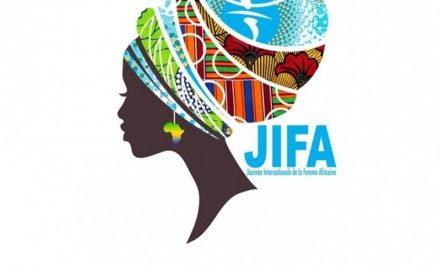 Cameroon : Dr. Yasmine Ndassa, the research scientist turned data storyteller
Cameroon : Dr. Yasmine Ndassa, the research scientist turned data storyteller
 Julien Ngum Che : advocating for the rights of displaced women and youth in Cameroon
Julien Ngum Che : advocating for the rights of displaced women and youth in Cameroon
 Chilufya Mutale Mwila, the Zambian entrepreneur driving financial inclusion across Africa
Chilufya Mutale Mwila, the Zambian entrepreneur driving financial inclusion across Africa
 Wangari Muchiri, the Kenyan engineer committed to accelerating the ecological transition in Africa
Wangari Muchiri, the Kenyan engineer committed to accelerating the ecological transition in Africa


The world celebrates the International African Women’s Day (IAWD) every July 31st. The event, which has been commemorated for five decades, is an opportunity for African women’s movements to take stock of women’s rights on the continent.
Unlike the International Women’s Rights Day, which is celebrated every 8 March, the International African Women’s Day (IWWD) is less known. However, it has been commemorated every July 31st since 1974.
It was on the initiative of Aoua Keita, a Malian activist and politician, that July 31st was declared International African Women’s Day in 1974. A memorable date, because twelve years earlier, on July 31st 1962, women from all over the African continent met for the first time in Dar es Salaam in Tanzania and created the Pan-African Women’s Organisation, the very first women’s organisation in Africa. The aim of this organisation was to improve the conditions of women in Africa and to promote their emancipation.
In 1974, at the first summit of the organisation in Senegal, July 31st was officially established as International African Women’s Day (IWWD).
From then until now, several legal advances have been adopted to protect African women, among others: The Maputo Protocol adopted in 2003 by the African Union; the Solemn Declaration for Gender Equality in Africa adopted in 2004; the Protocol to the African Charter on Human and Peoples’ Rights adopted in 2016.
However, despite this progress, the promotion of African women’s rights still faces several challenges. Women are still subject to numerous discriminations linked to socio-cultural considerations, but also to national laws. They are still under-represented in governments and parliaments in Africa.
The International African Women’s Day is an opportunity to take stock of the achievements and shortcomings in the promotion of women’s rights in Africa to ensure the effectiveness of the rights of African women.